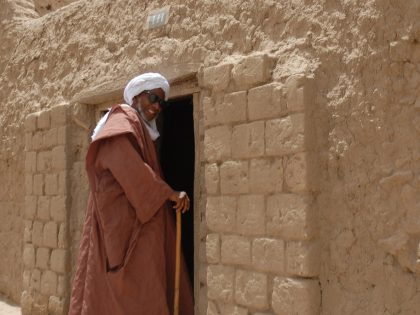The great Somali apologia
Every time you project terror onto Somalis, remember to ask how we live in Mogadishu.

Image credit Tobin Jones for UN Photo via Flickr (CC).
For Somalis, the first realm of fear comes from their leadership’s apologia. This is why Somalis have to apologize. There is no avant garde, but merely vacant blue corporate suits. Let us give you a taste of what we live with in Mogadhishu. Every time you project terror, remember how we live here.
Xamar (Mogadishu) has a certain relationship with mortality. It is so close to the line between the living and the dead. Anyone of us can go, all it takes is Al Shabaab imposing on your routine. It is amazing how as soon as the carnage happens, folks start to clean up, build, wipe the blood off the asphalt and move on. The mindset resets and the daily returns. As if, this marauding danger is pushed back to the inner or outer reaches of the mind. Where it latently languishers until the next return.
Out of the daily, I see and understand it myself somewhat as a condition of anyone in the midst of such colossal uncertainty. In this mode, we all reflect in the first 24 hours: first how close you were (in my case I am staying about 100 meters away from the bomb, woken up by shattered glass, fixtures strewn along with from the aftershock) gaping holes where the door window was. Thinking, oh shit, they are in the compound. Next, they will be coming to the rooms to get all the murtids! The apostates. The backsliders. So, I dressed quickly and did not have time for shoes. Made a dash to the back of the compound Exit, exit before I make it to the living quarters. They always lay siege to the hotel and take everyone with them. Of course, I am off to hell and of course they to paradise.
Outside the hotel workers and a coterie of guests were running like chickens without heads. Like myself, an older gentleman was fully dressed, but without socks. The back of the compound is a maze of structures a from many reincarnations of the structures in Somalia’s heydays. This was offices for a robust USAID presence. The old man owned the vast compound which gate reaches the main drag. Approximately, a New York block and change away from the carnage.
In this confusion, my purpose is palpitating, pressured by the window of time. I am (we are) all thinking, “From the gate to us it will take them a few minutes to reaches us. In the back.” There is a young Somali composer from the UK rocking his underwear and completely gone. Running back and forth, completely “gone.” He finally settles on following some us who seem to have a sense of purpose. I ask one the workers f there is another exit. “Yes,” he says. We both move urgently. I follow. The difference between the unsettled to our degree, of the young man from the UK, is that it was his first such experience of an explosion. The two of us are not looking back but we hear the old man, young man and others sounds and pace behind us. We venture through what was possibly a vast kitchen in the past and the worker starts to remove a large round metal plate from its leaning position on the wall. I help remove this heavy plate and some other material to expose the bottom of the back wall, four or six blocks missing. Leaving the wall exposed enough for a slim person to wriggle through. I was the first to wriggle followed by the worker. We were outside the compound and into another. Just a large walled compound with a small heard of black-head lambs grazing in the far corner, oblivious it seems to us and the earth shaking tremor from the explosion.
We seized a moment of reprieve having located and gotten away from the immediate danger of the hotel enclosure. We sat on our haunches, taking in the space between us and outside from the compound. The side roads were visible in far reaches beyond the lambs. We remained there just outside the wall for minutes. I could now see smoke bellowing intensely beyond the walls. I realized then that the explosion was somewhere else. Close, but not to the hotel compound we had just escaped from. The line behind never came through the wall to our side. We decided to crawl back. The thorny grass bit me, already my mind had gone from certain murder to worrying about the prickly thorny grass. We got back and ended up going to the place (front gate) we were so desperately getting away from.
Soon we talked about what happened, who was hilarious: me, no shoes, first to get out, the old man with socks. The composer whose legs were still quivering standing in a banquet hall alone, petrified. Still not convinced the danger was over. He left the very next day when the roads were open again. The old man said he didn’t know he could run like that. He thought that. Was just a memory. Who jumped over the walls, 9 feet with razor wire. The other standing in this middle in the middle of his upstairs disheveled room. Fixtures on his bed, shattered glass everywhere. He stood there immobilized looking below at the proceedings, us running for our lives! He seemed tranquilized by the whole affair. He stood their peering from the second floor. From a now empty space where the window and its fixtures were. We talked to him on our return from the escape almost shouting in conversation. He managed to laugh at us, himself and just found his immobility so hilarious.








